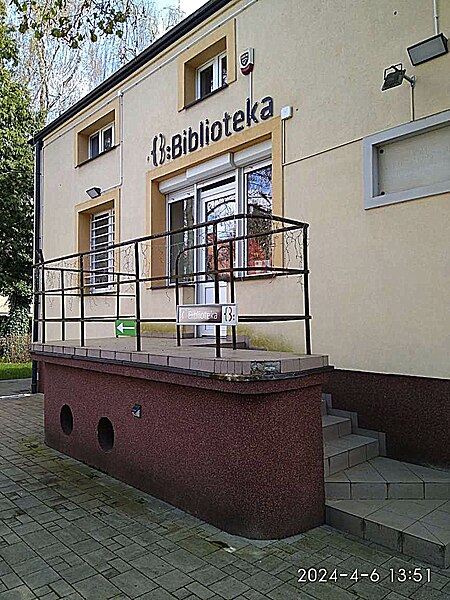Maria Dąbrowska was a Polish writer, novelist, essayist, journalist and playwright, author of the popular Polish historical novel Noce i dnie written between 1932 and 1934 in four separate volumes. The novel was made into a film by the same title in 1975 by Jerzy Antczak. Besides her own work, she was also known for translating Samuel Pepys' Diary into Polish. In addition, Dąbrowska was awarded the prestigious Golden Laurel of the Polish Academy of Literature in 1935, and she was nominated for the Nobel Prize in Literature eleven times between 1939 and 1965.
Family manor in Russów, where Dąbrowska was raised
Maria Dąbrowska sitting, sculpture at her property, Komorów by Warsaw, 6 April 2024
Maria Dąbrowska property at Komorów by Warsaw, Poland, 6 April 2024
Nights and Days is a 1975 Polish film directed by Jerzy Antczak. This epic family drama was based on Maria Dąbrowska's novel Noce i dnie, and was described by The Washington Post as "Poland's Gone With the Wind". Set in Kalisz and the Kalisz Region in the second half of the 19th century after the failure of the January Uprising in 1863, the film presents a unique portrait of an oppressed society, life in exile, and the confiscation of private property as told through the loves and struggles of the Niechcic family. This sweeping historical epic was the highest-grossing film in Poland's history upon its release and was nominated for an Academy Award for Best Foreign Language Film in 1977. The film score was composed by Waldemar Kazanecki, which includes a Viennese waltz that is frequently played at Polish weddings as the first dance of bride and groom.
Nights and Days




